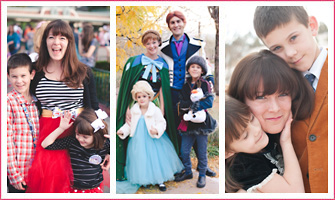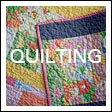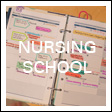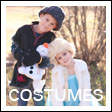
Another bimester down, only three more to go! I’m only 1.5 semesters away from graduation!!
This bimester I was in psych, and in terms of testing and grades, it was one of the easier classes. Once you figure out the “rules” of therapeutic communication and psych in general (who is the greatest threat to safety, what takes priority, etc), you’ll get most of the questions right, regardless of the actual topic. Because our class and clinical hours were lighter than ever before, and because I was doing well on the tests, this was the most enjoyable bimester so far in terms of school/life balance. I did some baking, I got into a great workout habit, and I read a bunch of non-nursing school related things! It was nice to have this in the first bi, since I got to enjoy the mild late summer/early fall weather. It was lovely. I will miss that ‘having a life outside school’ thing.
I had heard that psych was a good chance to do some self-analyzing, and that made me privately roll my eyes. But then I found it to be true. (Stupid psych.) You have the extra time to think about the principles that you’re learning and about happiness and it’s a touchy-feely time, even if you aren’t particularly touchy-feely normally.
I had really wanted to be like “I don’t know why we have to spend an entire bi on psych when OB/Peds shares a bi–this is stupid and I’m not EVER going into psych” but you know that you can’t say that because you will see psych EVERYWHERE you go. (I went to the ACOG/ACNM/AWHONN Colorado Annual Maternal Morbidity/Mortality Conference yesterday and one of the talks was all about psych patients in OB. I was so excited to understand all the meds they were talking about. Second gen anti psychotics cause LGA babies? I KNOW WHY! !) BUT, even when you don’t have a psych patient, if you can learn and practice the therapeutic communication techniques, that will be handy with EVERY patient.
I knew from working as a CNA that I wanted to focus on developing my ability to have conversations with people in hard times during my psych rotation. There have been several situations at work where things got awkward, and my instinct was to handle them in the way we tend to handle things in ‘polite society’–minimize them, sweep them under the rug, carry things back to socially acceptable footing. I knew my instinct was wrong, but I also didn’t have any alternative tools. I used my clinical time to practice the heck out of therapeutic communication and become comfortable in those oh-god-what-do-you-even-say-to-that times. If you want the cliff notes version because you haven’t gotten to psych yet, silence with a head nod to indicate that you are listening will do the trick 98% of the time. The vast majority of adults will fill in the silence you leave. And as you practice it, it won’t be awkward silence anymore–you’ll get comfortable in the silent waiting spaces of uncomfortable topics.
I feel like no matter what kind of nurse you want to be, psych is an incredibly valuable class if you put energy into really learning therapeutic communication. So look forward to that. Because they are the scariest clinicals you will ever have, and it’s important to have something to look forward to.
This is the class that made every nurse at work shudder when I mentioned it. I couldn’t quite figure that out until I stepped into clinicals for the first time. What I imagined was something harmless or charming. Like a visit into the movie version of The Silver Linings Playbook. What it was actually like was prison nursing. On our very first tour of the units as our instructor fumbled with her keys to let us out of the highest acuity unit, a patient eyed a couple of us in a way that instantly made me want to run for a shower and muttered “if I had a weapon you’d see what I could do to you.”
Oh sweet baby Jesus, what have I done?! Is it too late to go back to wedding photography?
Another student had the pleasure of talking to a patient before looking at his chart (at their facility they weren’t allowed to look at the charts before talking to the patients). Come to find out this patient stabs himself while masturbating and fantasizing about stabbing women while raping them.
(Insert tiny high pitched whine of terror here.)
One of the patients in my unit was making threats about killing the previous doctors. The staff was not impressed by the threats. Until they looked into the records a little more and discovered that the individual had already be in prison for homicide.
Is it time to go home yet?!
I spent the first day trying not to cry. (And failed. I started to cry when one of my fellow students pointed out that I must be in hell, since I don’t even like taking care of men NORMALLY.) Those first couple of days I felt like I could make a Road Runner style hole in the wall in the shape of me and go running to my car and never look back.
As I contemplated having to walk unto those units BY MYSELF and talk to the patients, I tried to think about Jesus. And what Jesus would do. And how I should treat the ‘least of these.’ But then I would think about Oprah, and how she would like me to run when I have that ‘ut oh’ feeling. And Oprah was making a lot more sense than Jesus.
When your unlikely-to-worry husband sends you off to clinicals with a kiss and a sincere “stay safe” you know you are in deep into the darkest days of nursing school.
But then there are the less acute units. And since I was less focused on my own personal safety, I was able to have moments of clarity, or amusement, or the start of interesting thoughts.
I realized while leading a group session that underneath depression wasn’t a well of sadness, but a well of anger. The depressed patients were quick to talk about “people these days” and all had a lot of resentment toward how they had been treated. If that’s true, then a protective factor against depression in our own lives has to be letting things go, and seeing the best in others, and not feeling that anyone else owes us anything or has any real bearing on our own life.
The schizophrenic patients are incredible to listen to. Their words make no sense, but my brain would try so hard to make sense of the sentences because their inflection made it sound like SURELY that sentence made sense–it’s me that’s the problem. My favorite was “no one wants to drive the hearse…until they’ve eaten the chocolate cake.” I feel like that could actually be something deep. (I may have also just played Wise or Otherwise too many times). Or there was the time when I was brand newly out on the floor (as in my first five minutes alone) and a patient came up to me so excited about his holographic book and not having had any psych lectures yet, it took me WAYYYY too long to figure out that he was just having visual hallucinations and it was a perfectly regular book.
The child unit was really interesting because the therapeutic communication techniques that work on adults all go flying out the window with kids. Look them in the eye and use good listening posture, and they’ll shut right down. Approach a topic directly and they’ll basically tell you to go eff yourself. You have to be sneaky and come at everything sideways and backwards while distracting them with a puzzle or drawing. You have to pretend that you’re not actually paying all that much attention to them and are only casually interested in what they have to say. And that all feels 1000% more normal! The thing that startled me with all of the adult patients was how quick they were to share the most intimate part of their lives. At a gut level, that felt wrong. They were at such a vulnerable point in their lives, and I hadn’t done anything to deserve being trusted with their thoughts and feelings and stories other than show up with a student ID badge. The kids make you earn it, they are suspicious of you as a stranger and an adult, and they want to warm up to you first. THAT I understood!
All in all, it was a terrifying bimester, but a valuable one. Advanced Medical Surgical I is next. Back to lots of clinical and lecture hours I go!





















Susanne - Working with SMI and SED this whole post made me smile. Schizophrenics have got to be one of my favorite populations. I’m sure my college friends could have guessed this and I’m sure nick could tell you a story or two of my crazy interest in speaking to seattle’s crazy homeless people (I swear God gives us a vocation and starts training us before we even think we know what we want to do as grown ups!!)
I beleive and make a lot of effort to teach anger as a secondary emotion. Anger is the “easy” emotion that is almost always used to hide fear or hurt. When you can really see (non-psychotic) anger as hurt or fear, you can help de-escalate almost any situation.
It’s the bi-polar mamas that you want to keep a close eye on in you world.
Anyway, glad to hear you made it through! Those listening skills will make all the difference in every facet of you life!! ❤️❤️